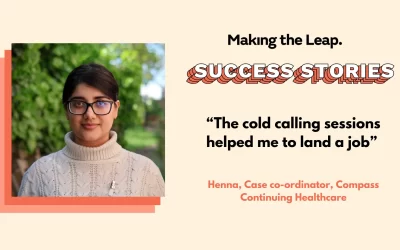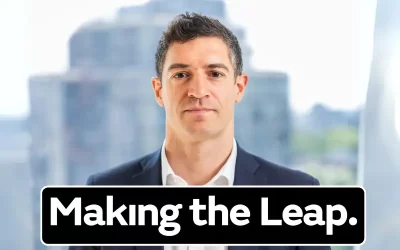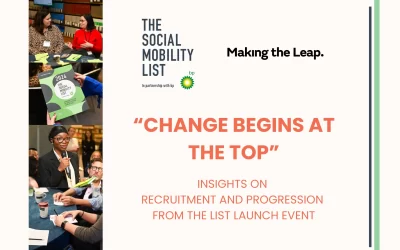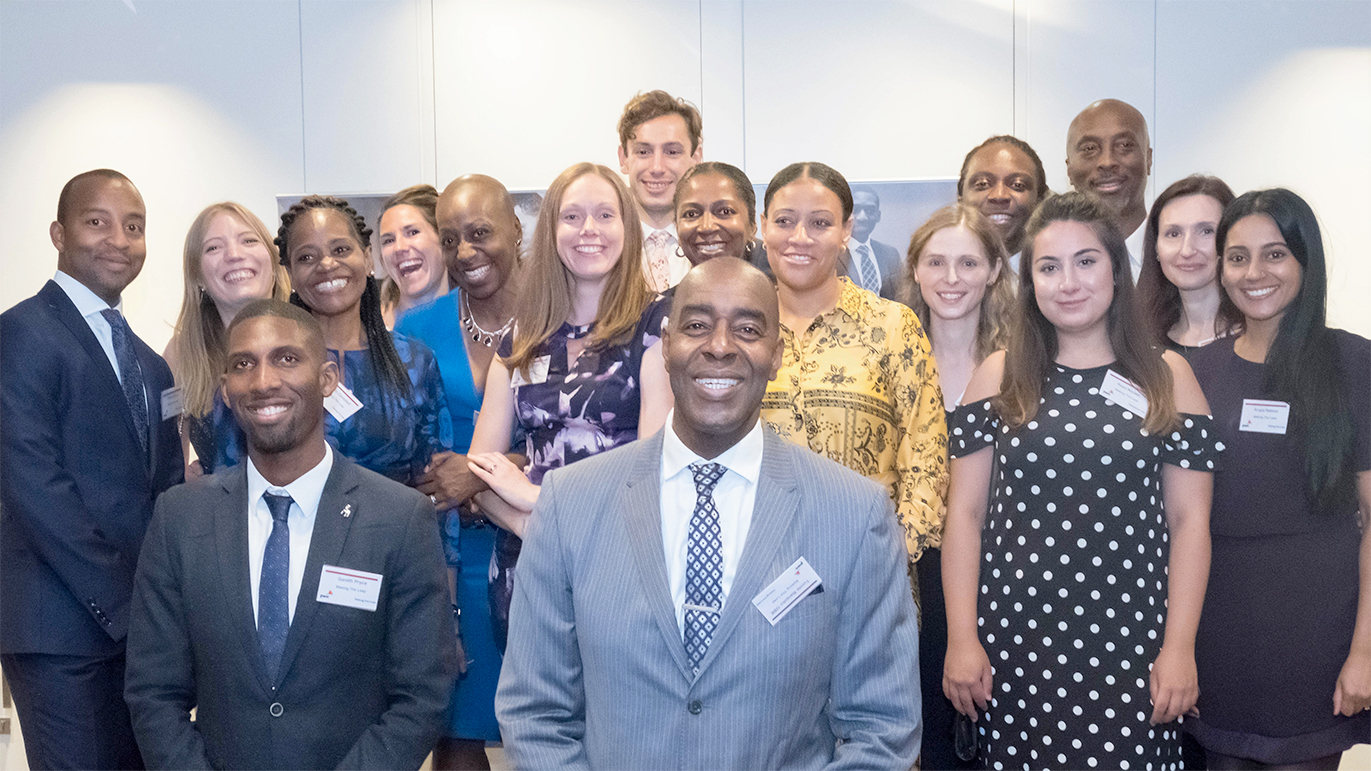
***
Check out all the pictures from our 25th anniversary.
Donate to our 25th anniversary appeal here.
For our Founder and Chief Executive, Tunde Banjoko OBE, the success and longevity of Making The Leap was not envisioned: “There no was grand plan. I fell into it by almost accident and didn’t think I would be doing it for long. Yet here I am, 25 years later!” While that might come as a surprise, it is a sentiment shared by our Operations Director, Eugene, who joined six months in: “I came from a sales background and wanted to do something quite creative – I had no idea what LEAP was.” Life is full of surprises.
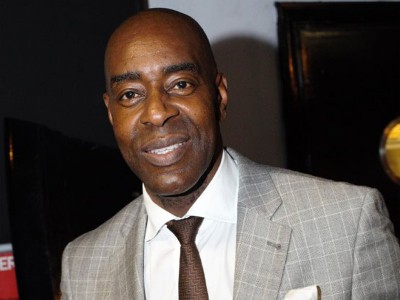
Tunde Banjoko OBE, Founder & Chief Executive – Making The Leap & The UK Social Mobility Awards
It is testament, however, to keeping an open mind and finding opportunities in unlikely places that, thanks to the perseverance of Tunde and Eugene, the charity soon became successful: “We helped to break the perception of inefficient community organisations,” says Eugene, who also acknowledges how the charity’s success helped to build his own confidence: “I had been unemployed and not known what I wanted to do. I became more confident that I could actually deliver and I started to enjoy winning people over.”
It is a slightly different story for Betty, who has spent 23 years at Making The Leap and is currently the Head of Educational Partnerships: “I always wanted to do something meaningful and have an impact. I felt I should be in my local area, supporting my community, helping the people I saw every day.” Betty’s experience of the process [Tunde had helped get her first job through LEAP] coupled with her desire for community-based work, meant that when she was headhunted by Tunde she jumped at the chance and never looked back. Between the three of them, Making The Leap boasts almost 75 years’ experience helping young people advance their careers in the local community. It is because of these solid foundations that we have had such a widespread, positive impact.
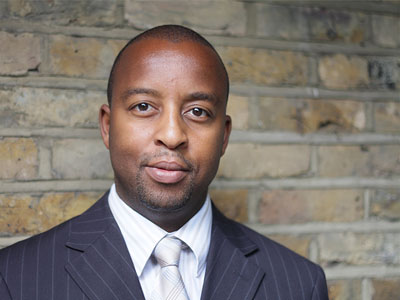
Eugene Blavo, Operations Director
Indeed, it is our unique understanding of the challenges faced by young people in London that has made our work so effective – something that was immediately picked up on by one of our volunteers, Tessa: “The children and young people we see have role models – 80% of the time they say their mother because they’re from single-parent families. What they don’t understand is that there are so many more jobs they are capable of doing.” This is the aspirational element of our work. It is one thing creating employment opportunities for young people. It is another thing entirely to equip them with the confidence and skills that enable them to exceed their own expectations.
For Eugene, raised aspirations were something that he benefited from personally: “I didn’t have any focus at all before joining here. I didn’t know where my career was going. An opportunity arose and I grabbed it with both hands – I was lucky because we’ve been growing ever since and I’ve been able to strive to achieve and do more.”
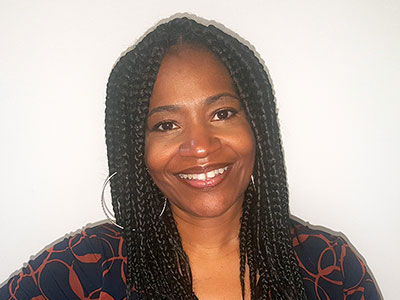
Betty Campbell, Head of Educational Partnerships
Another of our volunteers, Carolyn, echoes this thought: “It’s made me so much more confident; I couldn’t speak in public before but am now comfortable addressing a classroom, as I know what we are saying is important and valuable. I’m proud to talk about Making The Leap and I’m very proud to be a volunteer.” The common denominator is clear: wherever you come to Making The Leap from, whatever your involvement with the organisation, it will help you to grow professionally and personally.
Change is a constant at Making The Leap, and Betty has seen her fair share: “Over the years we’ve organically adapted to the need. When I first started we had 40-year-olds coming through – now I’m probably speaking to their grandchildren!”
One thing that hasn’t changed, however, is the commitment of the Making The Leap team: “The team here have been really committed to doing a great job for those we serve,” says Tunde. Perhaps, though, it is the experience of the volunteers that best sums up the drive and commitment of the staff. Tessa “can’t begin to explain the thrill” of finding out that somebody she had coached for a telephone interview got the job. Similarly, Carolyn loves “listening to the young people who’ve been through the programme – their stories are so inspiring!” For Eugene, though, it is quite simple: “When you go and talk to the young people and hear their stories, and how the programme is changing them, you want to be part of it. The work that you’re doing that hour, or that day, could have a huge contribution in one life or many lives.”
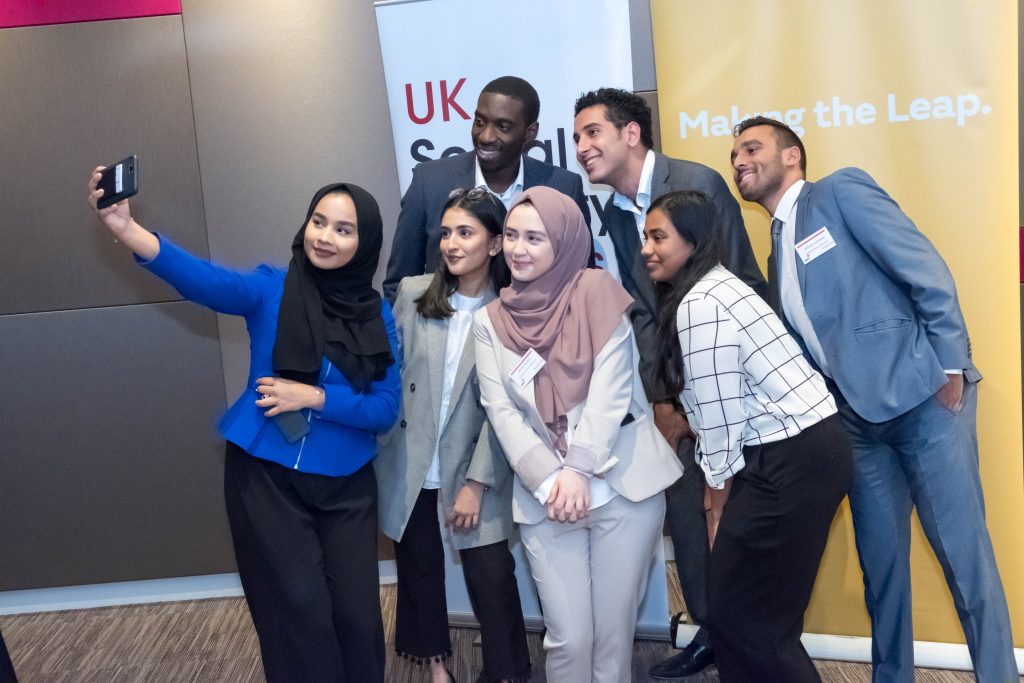
The Fellows Board, smashing the social media game as always!
Our holistic approach is vital for the success of the programmes. According to Carolyn, the key difference between those who come from privileged backgrounds and those who don’t can be seen in how much guidance they are given: “It’s the little bits of advice that are gently sewn through the fabric of their upbringing. When you’ve been looking people in the eye and shaking hands since the age of seven it becomes natural.”
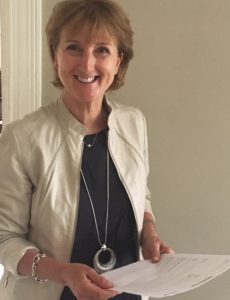
Carolyn, Volunteer
Whilst technical advice does make a huge difference, Tessa points out the impact of believing in our young people: “showing that you have faith in someone, saying to a young person that you are very intelligent – it might be that nobody said that to them before and it makes a huge difference.” Social mobility is a term that, partly due to its ubiquity, is difficult to truly understand if you haven’t had first-hand experience. There is simply no work more powerful than, in the words of Tessa, “giving young people the belief that they can transcend their situation.” This is the core tenet of social mobility.
Looking forward, there is plenty of work to be done. The inequalities in British society are not shrinking and disadvantaged young people continue to miss out on the kind of opportunities that are commonplace for others. Tunde see’s the launch and expansion of The UK Social Mobility Awards as a big step in encouraging organisations to make change happen: “We are at an inflexion point. We want the UK Social Mobility Awards grow with even more employers getting involved, doing the social mobility advancement activities that we all want to see.” Betty agrees: “I am excited about SOMOs – they are going to blow up! I’m really thankful that I’m working in an organisation that has masterminded the whole thing.”
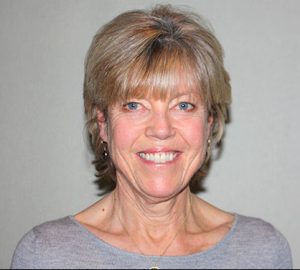
Tessa, Volunteer
The awards are helping to transition social mobility from something nice to do to a business imperative, and a little competition along the way doesn’t hurt, according to Tessa: “Corporates are now trying to find the best way to prove their commitment to social mobility – they want to be better than their competitor. The awards have given a platform for corporates to showcase their impact and share knowledge.”
Tunde’s vision doesn’t end there, though: “We want to partner with community organisations based in other parts of the country and share our model with them, so that young people in the regions can equally benefit.” As our influence has grown, our opportunities have increased and our aspirations have advanced. We know we are aiming big, but social mobility is a big problem that needs a big solution. Over the last 25 years we have proved ourselves capable of adapting to an increasingly inconstant business world. Over the next 25, we will help the businesses of the future to embrace social mobility at their core. You can help us do so by donating to our 25th anniversary appeal, here.
Check out all the pictures from our 25th anniversary here.
Follow Making The Leap on social media for all the latest news and updates.
